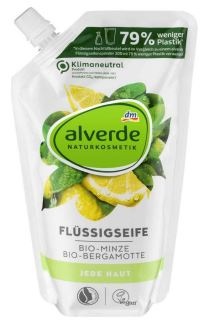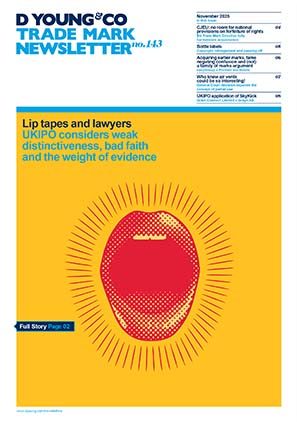Advertising climate neutrality: German courts establish divergent requirements
July 2023 delivered multiple decisions regarding advertising in Germany using “green claims”. The three cases concerned the packaging and print advertising of various products by manufacturers which claim to be “climate-neutral”. Jurisprudence since the 1990s has established that climate protection is an increasingly important topic for consumers, which can heavily influence their purchasing behaviour. Therefore, claims of climate neutrality must be carefully evaluated to ensure that consumers are not adversely misled when making purchasing decisions.
Whilst the claim by a fruit gummy manufacturer was deemed compliant, a jam manufacturer and drug store chain were found to be in violation of German Unfair Competition Law (UWG) for different reasons, having labelled their products climate-neutral.
Climate neutrality is not in itself a false claim
A claim can mislead a consumer if it contains untrue statements or other statements capable of deceiving consumers, thereby motivating them to make economic decisions they would not otherwise have made (Sec. 5 (1) UWG).
The Higher Regional Court Dusseldorf (OLG Düsseldorf) was asked to define the requirements for advertising with a climate-neutral claim displayed on the packaging of fruit gummies by the manufacturer Katjes, and jam by the manufacturer Mühlhäuser. The claimant in both cases, the Centre for Combating Unfair Competition (Wettbewerbszentrale), asserted that the statement was untrue, as the production of neither product was emission free.
The court deemed neither product to violate this provision; the term climate-neutral was not in itself misleading. The average consumer would understand that climate neutrality can be achieved both by actively avoiding producing emissions or offsetting CO2 with compensation measures, such as emission certificate trading. Therefore, even when CO2, emissions are released, where they are compensated, the product can still be advertised as climate-neutral without the statement being untrue and misleading.
Information obligation regarding compensation methods
However, a consumer can also be misled where essential information necessary for an informed decision is omitted (Sec. 5a (1) UWG).
In both decisions, the court emphasized that products advertised as climate-neutral should provide information about how the climate-neutrality is achieved and what compensation measures are taken, whether by the product’s own savings or only through compensation measures (such as purchasing CO2 certificates or supporting third party climate projects). The different approaches and assessment standards for determining a carbon footprint mean that consumers need further information to accurately assess such claims.
Whilst the advertising of the fruit gummies by Katjes’ fruit gummies advertising was deemed to fulfill this information obligation, the advertising by the jam manufacturer did not.
Neither the print advertisement nor the product packaging of the jam contained any indication of how the advertised climate neutrality was achieved. This information was available on the manufacturer’s website, which was displayed both in the print advertisement and on the product itself, but it was not indicated that the information could be found on the website. This was deemed insufficient by the court.
In contrast, the claim of climate neutrality in both the advertisement as well as the packaging of Katjes’ fruit gummies was accompanied by a QR code and reference to the website of its certification partner “ClimatePartner”. As the spatial restrictions of the chosen method of communication must be taken into account, this was held to be sufficient to fulfill Katjes’ information obligation.
Forest protection projects do not equal climate neutrality
Also, the District Court of Karlsruhe (LG Karlsruhe) was asked to determine the admissibility of the claims “climate-neutral” printed on a variety of products manufactured for and sold by the drug store chain dm. These claims were also accompanied by a reference to “ClimatePartners” (and a number sequence) and with the addition “CO2-compensated” product.

The LG Karlsruhe also found that providing the ClimatePartners’ website next to the climate neutrality claim was sufficient to fulfill the information obligation. However, simply providing the name of the certificate partner, without identifying the website, was not deemed sufficient. Further, companies must ensure that the website address (url) provided is correct and complete.
The court also highlighted that consumers must be informed about whether emissions from certain points in the product’s life cycle have been excluded from the calculation of climate neutrality. Depending on the approach, some steps of the life cycle are left out of the determination of emissions, thereby heavily influencing the outcome. For example, the emissions from the manufacture of preliminary products and ingredients can usually only be roughly estimated. Additionally, the consumer must be made aware of whether the emissions generated during the use and disposal of the product are included in the calculation. Not indicating such factors would greatly increase the possibility of “greenwashing” by misleading consumers of the actual net emission balance created by a product.
The court took the evaluation of whether the claim of climate neutrality was actively misleading within the meaning of Sec. 5 (1) UWG a step further than the OLG Düsseldorf and examined the specific compensation measures undertaken to offset CO2.
One of the measures sponsored by dm and certified by ClimatePartners is a controversial tree conservation project in Peru. Although such projects undoubtedly contribute to climate protection, the court found that the claim of climate neutrality goes beyond what can be achieved through forest protection. While the complete degradation of CO2 can take thousands of years, a forest can only bind it for as long as it stands. As the conservation project is only set to run until 2040, the trees could be felled and the CO2 released in under 20 years. However, when considering a claim of climate neutrality the consumer does not merely expect a delay in climate damage, but a final, permanent compensation.
Claiming that products are climate neutral where the sponsored compensation measure consists of forest preservation was therefore considered false by the LG Karlsruhe. Accordingly, dm was found to be in violation of Sec. 5 (1) UWG and ordered to stop selling and advertising products using the claim of climate neutrality.
Outlook
A decision from the German Supreme Court (BGH) will (hopefully) be delivered soon, after the Wettbewerbszentrale appealed the “climate-neutral sweets” decision (ref. no. I ZR 98/23). The BGH is expected to provide clear guidelines on what companies must do to legally advertise products with the term “climate neutral”. This would be highly welcome, not only due to the increasing number of companies using green claims to promote their products, but also in light of a large number of (somewhat differing) lower court decisions and lack of uniform standard.
Until the BGH hands down binding guidance, using the claim of climate-neutrality in product advertising will continue to carry the risk of being considered misleading. Companies are told to provide comprehensive information on how the claimed climate neutrality is achieved and what measures they have taken themselves in this regard. It is not sufficient to refer exclusively to compensation measures taken by third parties and in any event companies cannot rely on a court accepting that the compensation measures are adequate in light of the LG Karlsruhe decision. Companies will need to consider carefully whether a supported climate neutral project enables them to label their products as climate neutral.
It is imperative that the reference to a webpage with further information on how climate neutrality is achieved is given in connection with the term “climate neutral”. Consumers must be able to clearly recognize that they will find the necessary information on this specific url.
EU perspective
This increase in interest in green claims in Germany corresponds with the EU’s increased efforts in the area. Tackling the issue of greenwashing and unreliable or non-transparent sustainability labels is high on the EU’s list of priorities. One of the instruments designed to do so is the proposal for a Green Claims Directive, introduced by the EU Commission in March 2023 in the context of the EU’s European Green Deal. The directive includes the prohibition of environmental claims and sustainability labels that may mislead EU consumers by establishing several minimum criteria for transparency and credibility.
This proposal comes a year after the introduction of a proposal for a “Directive to empower consumers for environmental change through better protection against unfair practices and better information”. This directive also aims to better protect consumers from misleading advertising with environmentally friendly and sustainable features. It envisions an expansion of the list of banned commercial practices to include various "greenwashing" mechanisms.
Both directive proposals are currently in the process of being revised in various working groups and committees. It is not yet clear when they will be finally adopted.
Case details at a glance
Jurisdiction: Germany
Decision level: OLG Düsseldorf
Case numbers: 20 U 152/22 & 20 U 72/22
Dates: 06 July 2023
Decision (German text): dycip.com/20-U-152-22
Decision (German text): dycip.com/20-U-72-22
Jurisdiction: Germany
Decision level: LG Karlsruhe
Case number: 13 O 46/22 KfH - dm
Date: 26 July 2023
Decision (German text): dycip.com/13-O-46-22-KfH

